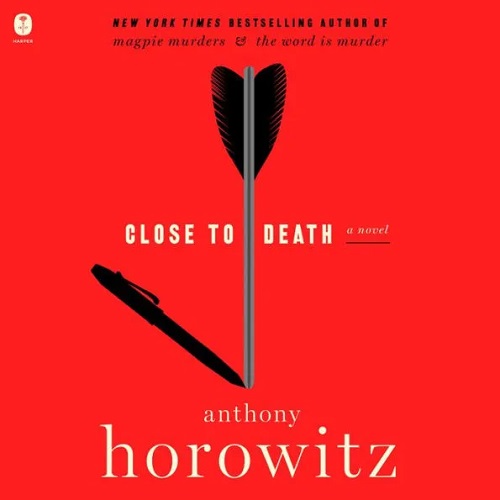 |
| photo by Peter Rozovsky |
You have probably encountered Anthony Horowitz in one format or another. He is a master of television, creating Foyle's War, being one of the first writers of Midsomer Murders, and so on. His Susan Ryland novels and Alex Rider young adult books have been filmed for TV.
Recently I have been listening to audio versions of his Hawthorne novels. They are deliberately odd books, featuring a narrator named Anthony Horowitz who writes novels and TV shows, and plays reluctant sidekick to Daniel Hawthorne, a former cop who was kicked off the force because he may (or may not) have thrown a pedophile down the stairs. They are delightful fair play mysteries.
Each book plays with the genre in different ways. In the fifth book, Close to Death, Horowitz is on deadline to write another book but there are no convenient crimes to work on so he attempts to build a volume out of one of Hawthorne's former cases. This means that big chunks of the book are in third person, since our narrator (Horowitz the narrator, not the audiobook's narrator. Got it?) was not present for the events.And that's where I got a big surprise. At one point we are told that Hawthorne looked off and noticed something. I don't have the exact wording because, as I have said, I was listening to an audio-book and it wasn't convenient to go back and find it. But I actually jumped a little when I heard that sentence.
Because we have never been allowed into the detective's head before. That made even this tiny excursion there seem like a violation. From then on I was paying attention and was able to copy down another example: "He didn't like to be close to people he didn't know." That is not narrator-Horowitz speaking but the omniscient third-person narrator, and it just felt like a violation.The reason is that Hawthorne himself is a mystery (each book reveals a bit more about him, not all of it necessarily true) and also he is the detective. We are not allowed to get into his head, because if we knew what he knew, the mystery would be over long before the end of the book.
This reminds me of something Mick Herron said at a Bouchercon I attended a few years ago. He was talking about his Slow Horses series and he said he could never let the reader into the head of the main character, Jackson Lamb. If he did we would know how much of his vulgarity, insults, racism, misogyny, etc. was real, and how much was put-on to annoy people. So while we can get into the skulls of his other characters, Lamb must remain sphinxlike.
I planned to end this there but I have been reading The Night the Rich Men Burned by Malcolm Mackay (what a title!) and he brings up a slightly different issue. This Scottish author has a unique style. I would guess that each of his books has almost twice as many words as another novel with similar page count, because there is almost no dialog. Everything is happening, present tense, in the heads of the characters. If we learn that it is raining it is because a character notices it.
And he is quite casual about head-hopping, moving from one person's thoughts to another as easily as changing paragraphs. Usually this would drive me mad but Mackay makes it work.
So how do you feel about writers prying too closely into their characters' skulls?


